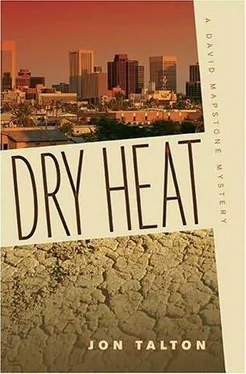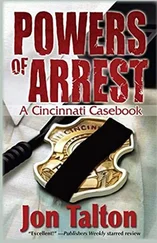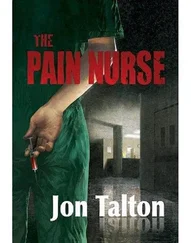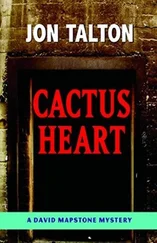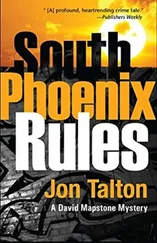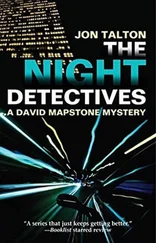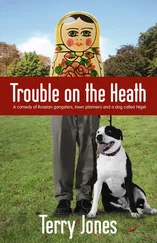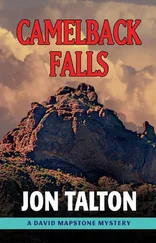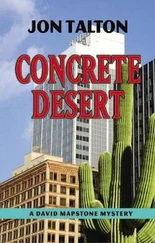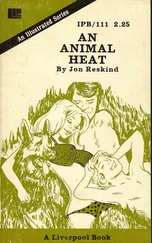Jon Talton - Dry Heat
Здесь есть возможность читать онлайн «Jon Talton - Dry Heat» весь текст электронной книги совершенно бесплатно (целиком полную версию без сокращений). В некоторых случаях можно слушать аудио, скачать через торрент в формате fb2 и присутствует краткое содержание. Жанр: Полицейский детектив, на английском языке. Описание произведения, (предисловие) а так же отзывы посетителей доступны на портале библиотеки ЛибКат.
- Название:Dry Heat
- Автор:
- Жанр:
- Год:неизвестен
- ISBN:нет данных
- Рейтинг книги:3 / 5. Голосов: 1
-
Избранное:Добавить в избранное
- Отзывы:
-
Ваша оценка:
- 60
- 1
- 2
- 3
- 4
- 5
Dry Heat: краткое содержание, описание и аннотация
Предлагаем к чтению аннотацию, описание, краткое содержание или предисловие (зависит от того, что написал сам автор книги «Dry Heat»). Если вы не нашли необходимую информацию о книге — напишите в комментариях, мы постараемся отыскать её.
Dry Heat — читать онлайн бесплатно полную книгу (весь текст) целиком
Ниже представлен текст книги, разбитый по страницам. Система сохранения места последней прочитанной страницы, позволяет с удобством читать онлайн бесплатно книгу «Dry Heat», без необходимости каждый раз заново искать на чём Вы остановились. Поставьте закладку, и сможете в любой момент перейти на страницу, на которой закончили чтение.
Интервал:
Закладка:
Jon Talton
Dry Heat
Chapter One
Maryvale! Fortunate home of the American dream. A single-family detached house in the suburbs: three bedrooms, living room, den, all-electric kitchen and carport, laid out in a neat rectangle of a one-story ranch, house. We’ve got thousands of ’em, ready to sell, on safe winding streets in brand-new Phoenix. New as a hula hoop. New as a teal ’58 Chevy. New as this morning’s hope. Leave behind those snow shovels and below-zero winters. Leave behind the old dingy cities of the East and Midwest with their crime and racial trouble. Time for a fresh start, thanks to a VA mortgage and the FHA. You’ve earned it: a backyard lifestyle with a new swimming pool. Here in Phoenix, it’s eighty degrees in January, and in summer, we’ve got air-conditioning. Green lawns, blond children, pink sunsets. All in Maryvale.
Until you go out one fine day and find a body facedown in the green water of what was once the swimming pool.
I didn’t want to know how hot it was. It was the first of April, way too early to be soaking in sweat. Too early to be breathing superheated air and ducking for cover from sunlight so intense I might as well have been on planet Mercury.
Planet Maryvale felt bad enough. I turned off Fifty-first Avenue, into an opening of the seven-foot gray cinder block walls that separated backyards from the six-lane highway. Then I was in the curvilinear maze of half-century-old suburbia, aging badly. Most of the lawns were long gone, replaced by lifeless dirt and occasional sun-bleached weeds. A pile of old car parts sat in one front yard, a rusted hood sticking out of the ground like a gravestone. A few soaring trees attested to the age of the place, but it was a wonder they were still alive. Identical ranch houses were distinguished by their degree of decay or the severity of the burglar bars on the windows. Around some houses, walls and gates with nasty looking spikes had been added in recent years. The occasional well-kept yard and newly painted house only made the overall sense of abandonment more apparent. Lampposts, stop signs, and walls were adorned with the tribal glyphs of graffiti.
Around a wide corner, the street was jammed with city property: six Phoenix police cruisers, two crime lab vans, and several of the uncomfortable alternative-fuel Chevy Cavaliers that had been forced on the city detectives. They were parked closest to a cream brown cinder block ranch with a stripe of faded orange paint along the roofline. Behind the bars, one window was partly covered with cardboard. A pale blue city recycling hopper sat at a jaunty angle in the middle of the “lawn,” its jaw open as if to receive offerings. The hopper was empty. Across the street, groups of neighbors were standing on the sidewalk, talking quietly in Spanish. Women, babies, old men. Brown faces followed me as I locked the car and walked toward the clot of blue uniforms at the side gate. I slipped my gold star over my belt.
“Christ! What’s he doing here?”
That was a woman’s voice, unpleasantly familiar, coming from behind a splintery wood fence. My stomach kicked up some bile. “Hey, professor!” said another voice, friendlier. “May I help you, sir?” came from the young uniform facing me. I could smell dead body over his shoulder.
“You guys called me,” I said, imagining other things I’d rather be doing, especially getting reacquainted with Lindsey. It had been only two weeks, too damn long. I felt an achy longing for her, something I’d never grown out of and never wanted to. I sure didn’t want to be here. Just that morning I was in a cool place, in another time zone. I was still technically on vacation, not that it was much of a vacation, not that it mattered to Peralta. The cop studied my badge, my ID. He said “sheriff’s office” as if he had never heard the words in his life, and then looked back over his shoulder uncertainly.
“That’s Mapstone,” came a man’s voice. “Let him back here.”
The man was a detective captain I’d worked with before, named Markowitz. He was tall, florid, and straw-haired. He wouldn’t have looked out of place as a coach of a small-town high school basketball team. But I only saw him when murder was involved. This day he was wearing a bilious green golf shirt, chinos, and a film of sweat.
“Goddamned hundred degrees outside,” he said.
“I don’t want to know.”
The sun beat upon us. In two months, an even hundred degrees would be balmy weather for my hometown. But I was trying to avoid the annual dread that built up in Phoenicians as the pleasant winter months wind down and summer hell looms ahead. I looked in vain for nearby shade.
“It’s never this hot so early,” he said, starting to wipe his brow. He realized he had on latex gloves and thought better of it.
“Pave over the Sonoran Desert and this is what you get,” I said, doing a look around the crime scene.
“This heat,” he said. “You know what this must be like?”
I shrugged and tried to blow the sweat off my sunglasses.
“This must be what it’d be like, the second after they set off an H-bomb. You haven’t been vaporized yet by the blast wave. But you can feel the heat, like somebody ignited the sun right in front of your face.”
Mr. Cheerful.
The backyard consisted of dirt, lots of dirt, plus beer cans, full trash bags, and tiny archipelagos of unruly grass that had flourished in the brief spring and now were being burned to death. In the middle was a small, rectangular swimming pool. The ladder had rusted brown. Bobbing strangely above the surface were two heads, young women in ponytails, and they didn’t appear to be swimming.
As I got closer, I realized it had been a long time since the gash in the ground had borne any resemblance to a swimming pool, and the heads were attached to evidence technicians in blue jumpsuits. One was using a video camera. I peered over the edge, looked into thick greenish soup that filled maybe two feet of the deep end. The technicians stepped through it in yellow wading boots. A bald tire held one corner of the lagoon. A broken piece of plywood floated nearby. I pushed aside the nauseating temptation to imagine what was in the water.
“What am I looking at?” I asked.
“The final resting place for that gentleman,” Markowitz said, nodding toward a body bag lying on the patio, surrounded by more uniforms and detectives. All I could see sticking out of the black bag were a few tufts of gray hair.
“He live here?”
“Nope, somebody found him and called us. By the time we got here, whatever huddled masses were living here hightailed it.”
So the house was a “coyote” hideout, a place where smugglers brought their human cargo to disperse to the kitchens, lawn services, and sweatshops of the nation’s fifth largest city, or for points beyond. Phoenix was a major transit point in the people-smuggling trade. If an illegal immigrant made it across the border and through some of the most inhospitable desert on earth, he rested in Phoenix before heading off to find work in the slaughterhouses of Nebraska or the chicken processing plants of North Carolina. That is, if he didn’t wind up in a shoot-out between rival smugglers. It was a hell of a way to get to a low-wage job.
I kept my thoughts to myself as the cop editorialized. “I grew up out here,” Markowitz said. “Right here in Maryvale. We lived maybe a mile from this spot. It was nice. Now it’s all Mexicans, living ten to a room. Gangs. Turned to shit.”
He watched me, and the line down his forehead deepened like a river channel in a reddish landscape of skin. “I’m not a racist, Mapstone. I just don’t understand why they don’t stay in their own country.”
Читать дальшеИнтервал:
Закладка:
Похожие книги на «Dry Heat»
Представляем Вашему вниманию похожие книги на «Dry Heat» списком для выбора. Мы отобрали схожую по названию и смыслу литературу в надежде предоставить читателям больше вариантов отыскать новые, интересные, ещё непрочитанные произведения.
Обсуждение, отзывы о книге «Dry Heat» и просто собственные мнения читателей. Оставьте ваши комментарии, напишите, что Вы думаете о произведении, его смысле или главных героях. Укажите что конкретно понравилось, а что нет, и почему Вы так считаете.
